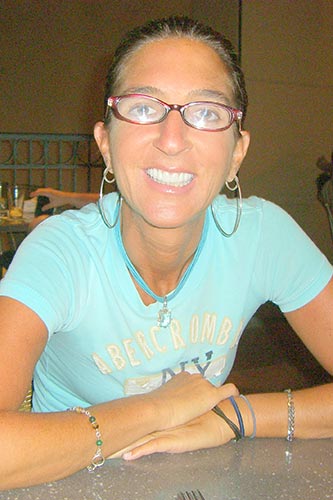Content
Several days later, another investor, TechVision Ventures, contacts a different broker and expresses interest in buying Green the otc market Penny shares. The broker reaches out to various market makers and discovers that the price has increased due to growing investor interest. TechVision eventually purchases 20,000 shares at $0.95 per share from another market maker.
How Are the OTC Markets Regulated?
OTC companies generally have a much smaller market cap than those listed on NASDAQ or NYSE. Lack of regulatory oversight makes the Pink Market the riskiest of all the OTC markets. Pink Sheet stocks are usually penny stocks and many of them are worth less than $0.01. Trading in this low-cost, high-risk market can also yield high returns. In 2007 NASD merged with a sector of the New York Stock Exchange to form the Financial Industry Regulatory Authority (FINRA), which became the main regulatory body of that market in the United https://www.xcritical.com/ States. Although retail prices of over-the-counter transactions are not publicly reported, interdealer prices for the issues have been published since February 1965 by NASD and later FINRA.
Single filing with exchanges soon: SEBI chief Buch
Because of the variable, self-reporting nature by OTC Pink companies, they are classified based on the quality and quantity of information they provide to investors. Finally, because of the highly speculative and higher risk backdrop of investing in OTC securities, it’s important to invest only an amount of money that you are comfortable losing. Are you interested in learning more about forex trading and how the OTC markets work? Try a risk free demo or live account to put your trading knowledge in action. Check out this guide on what the OTC market is along with the benefits and risks.
- The shares for many major foreign companies trade OTC in the U.S. through American depositary receipts (ADRs).
- Get tight spreads, no hidden fees, access to 11,500 instruments and more.
- OTC trading generally refers to any trading that takes place off an exchange.
- FINRA’s responsibilities include monitoring trading activities, enforcing compliance, and handling disputes.
- In the United States, over-the-counter trading of stocks is carried out through networks of market makers.
- The process is often enhanced through electronic bulletin boards where dealers post their quotes.
Where Can I Find Information About OTC Trading?
Not really, other than an exchange, brokerage, or platform perhaps not allowing users or investors to trade OTC stocks or securities. In that case, investors can look for another platform on which to execute trades that does allow OTC trading. OTC prices are not disclosed publicly until after the trade is complete. Therefore, a trade can be executed between two parties via an OTC market without others being aware of the price point of the transaction. This lack of transparency could cause investors to encounter adverse conditions. Comparatively, trading on an exchange is carried out in a publicly transparent manner.
Securities of publicly traded companies that are not willing to provide information to investors are considered highly risky. The OTC markets give traders access to companies that are growing but aren’t yet large enough to be listed on the NASDAQ or NYSE. Investing in a company before it gets listed on a major exchange can yield an incredible ROI. OTC traders also have access to foreign companies that trade on exchanges outside of the U.S.
However, it’s essential to note that not all brokers offer the same level of access or support for OTC investments. Some brokers may limit trading in certain OTC securities (such as “penny stocks”) or charge higher fees for these transactions. The over-the-counter (OTC) market is a decentralized market where securities, not listed on major exchanges, are traded directly by a network of dealers. Instead of providing an order matchmaking service like the NYSE, these dealers carry inventories of securities to facilitate any buy or sell orders. Because information was initially printed on pink paper, the OTC Pink is also referred to as the Pink Sheets. In addition to the decentralized nature of the OTC market, a key difference is the amount of information that companies make available to investors.
Stocks and other financial instruments can also be traded OTC – this includes derivatives such as swaps and forward contracts. Investing in Pink Markets carries substantial risk due to the lack of stringent regulatory oversight. Risks include limited financial information, high volatility, low liquidity, and potential for fraud or manipulation. OTC Link allows broker-dealers not only to post and disseminate their quotes but also to negotiate trades through the system’s electronic messaging capability.
Otherwise the screens are merely informative, and the dealer must trade through the broker or call other dealers directly to execute a trade. For foreign companies, cross-listing in OTC markets like the OTCQX can attract a broader base of U.S. investors, potentially increasing trading volume and narrowing bid-ask spreads. Some foreign companies trade OTC to avoid the stringent reporting and compliance requirements of listing on major U.S. exchanges.
Because of the lack of reporting requirements, only professional and sophisticated investors with a high risk-tolerance should trade here. Investors should perform all the proper due diligence by researching the companies they are considering and reviewing all business activities. For example, penny stocks are traded in the over-the-counter market, and are notorious for being highly risky and subject to scams and big losses. There are a few core differences between the OTC market and formal stock exchanges. The information on this website is general in nature and doesn’t take into account your personal objectives, financial circumstances, or needs.
Major markets are open 24 hours a day, five days a week, and a majority of the trading occurs in financial centers like Frankfurt, Hong Kong, London, New York, Paris, Sydney, Tokyo, and Zurich. This means the forex market begins in Tokyo and Hong Kong when U.S. trading ends. Like other OTC markets, due diligence is needed to avoid fraud endemic to parts of this trading world. Investors had to manually contact multiple market makers by phone to compare prices and find the best deal.
SEC regulations include disclosure requirements and other regulations that issuers and broker-dealers must follow. The SEC’s Rule 15c2-11 plays a critical role in regulating the OTC markets by requiring broker-dealers to conduct due diligence on the issuers of securities before publishing quotations for those securities. In the U.S., the National Association of Securities Dealers (NASD), later the Financial Industry Regulatory Authority (FINRA), was established in 1939 to regulate the OTC market. OTC markets have a long history, dating back to the early days of stock trading in the 17th century.
After evaluating the quotes and considering the company’s prospects, MegaFund buys 30,000 shares from OTC Securities Group at $0.85 per share. The trade is executed directly between MegaFund and OTC Securities Group through a private negotiation. No public announcement is made about the transaction, and the price isn’t displayed on any exchange.
We do not include the universe of companies or financial offers that may be available to you. OTC dealers convey their bid and ask quotes and negotiate execution prices by telephone, mass e-mail messages, and, increasingly, text messaging. The process is often enhanced through electronic bulletin boards where dealers post their quotes. Negotiating by phone or electronic message, whether customer to dealer or dealer to dealer, is known as bilateral trading because only the two market participants directly observe the quotes or execution.
In September 1999, the NQB introduced the real-time Electronic Quotation Service. An over-the-counter derivative is any derivative security traded in the OTC marketplace. A derivative is a financial security whose value is determined by an underlying asset, such as a stock or a commodity. An owner of a derivative does not own the underlying asset, in derivatives such as commodity futures, it is possible to take delivery of the physical asset after the derivative contract expires. The OTC marketplace is an alternative for small companies or those who do not want to list or cannot list on the standard exchanges.
OTC markets could also involve companies that cannot keep their stock above a certain price per share, or who are in bankruptcy filings. These types of companies are not able to trade on an exchange, but can trade on the OTC markets. By contrast, an OTC equity issuer may or may not be required to file these reports. Some OTC equity issuers do file regular reports with the SEC like listed companies, and some non-SEC reporting OTC equity issuers might make certain financial information publicly available through other avenues.



